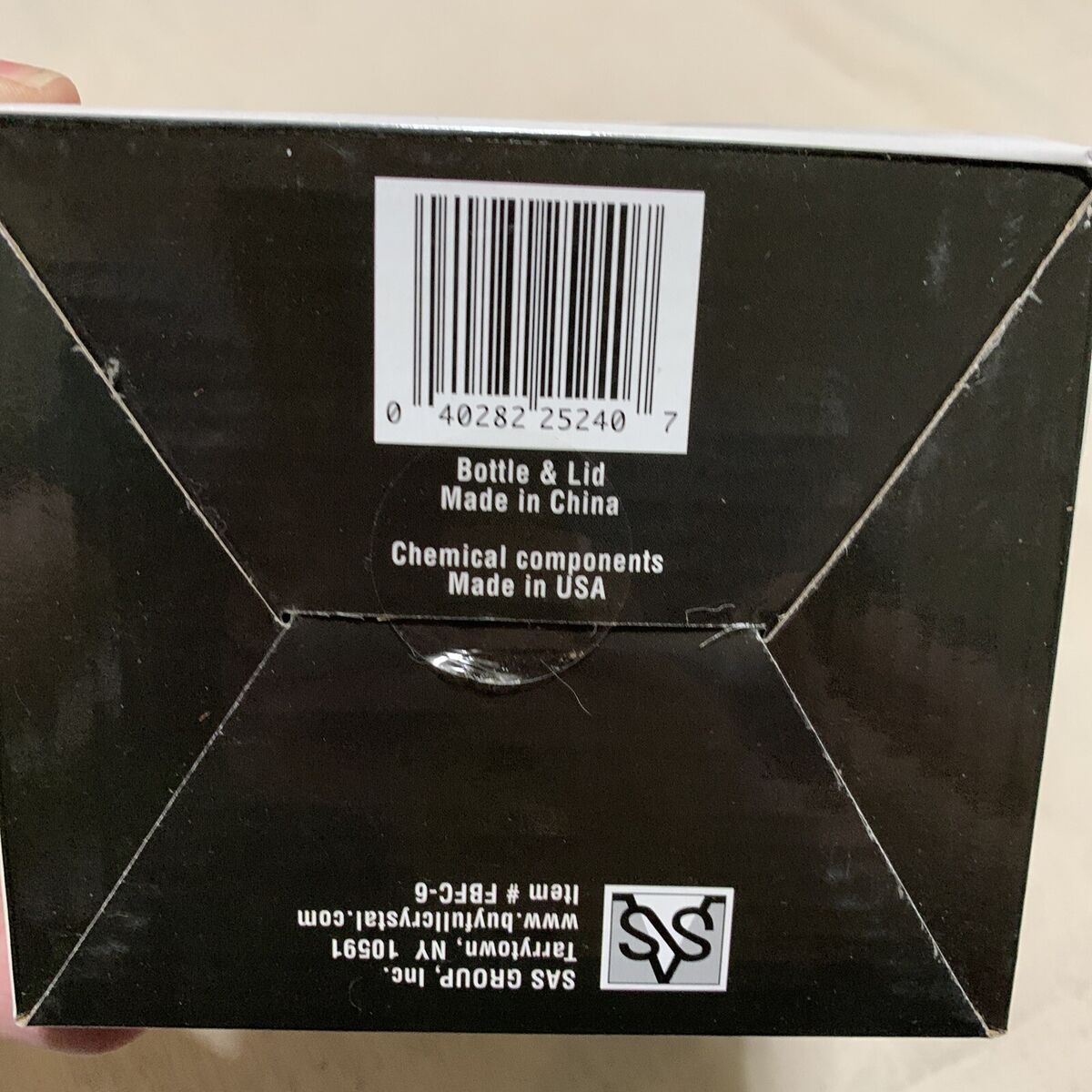Denture cleaner does not kill strep. Denture cleaners are specifically designed to remove stains, plaque, and bacteria from dentures, but they do not have the ability to kill strep bacteria.
Streptococcus (strep) bacteria are responsible for various infections, including strep throat, and require specific antibiotics for treatment. While denture cleaners can help maintain oral hygiene and reduce the presence of bacteria on dentures, it is important to consult a healthcare professional for the treatment of strep infections.
Understanding The Role Of Denture Cleaner In Killing Oral Bacteria
Denture cleaner plays a crucial role in killing oral bacteria, but does it effectively eliminate strep? Understanding the efficacy of denture cleaner in killing strep can help maintain oral health and hygiene.
Denture Cleaner And Its Impact On Oral Health
Denture cleaner is an essential product for anyone who wears dentures. Not only does it help to clean and maintain the appearance of dentures, but it also plays a crucial role in maintaining oral health. Let’s explore the effectiveness of denture cleaner in killing strep bacteria and how it works on oral bacteria.
Exploring The Effectiveness Of Denture Cleaner In Killing Strep Bacteria
- Denture cleaner contains active ingredients that are specifically designed to kill oral bacteria, including strep bacteria. These active ingredients effectively target and neutralize harmful bacteria, reducing the risk of infections and other oral health issues.
- Proper hygiene is crucial when it comes to denture maintenance. Regularly cleaning dentures with denture cleaner significantly reduces the number of bacteria present on the surface. By eliminating harmful bacteria such as strep, denture cleaner helps maintain a healthy mouth.
- Denture cleaner not only kills strep bacteria but also removes stubborn stains, plaque, and food particles that can accumulate on dentures. This thorough cleaning process ensures optimal oral hygiene and helps prevent various dental problems.
- The cleansing properties of denture cleaner help eliminate bad breath caused by microbial growth. By eradicating bacteria responsible for unpleasant odors, denture cleaner gives you fresh breath and boosts your confidence.
The Science Behind How Denture Cleaner Works On Bacteria
- The active ingredients in denture cleaner work by disrupting the cell walls of bacteria, causing them to rupture and die. This process effectively kills bacteria, including strep, eliminating the risk of infections and oral health complications.
- Denture cleaner often contains antimicrobial agents that actively attack and destroy oral bacteria. These agents penetrate the biofilm formed by bacteria, breaking it down and ensuring a thorough clean.
- Denture cleaner also helps to prevent the formation of new biofilm by creating an environment that is unfavorable for bacteria to grow. This inhibits bacterial colonization, reducing the risk of infections and maintaining oral health.
Denture cleaner plays a vital role in killing strep bacteria and maintaining overall oral health. Its active ingredients effectively eliminate harmful bacteria, remove stains and plaque, and freshen breath. By understanding the science behind how denture cleaner works, you can make informed decisions about maintaining your dentures and ensuring optimal oral hygiene.
Choosing The Right Denture Cleaner For Optimal Results
Choosing the right denture cleaner is crucial for optimal results. While denture cleaners are effective in killing many bacteria, it is important to note that they may not specifically target the strep bacteria.
Maintaining proper oral hygiene is crucial, especially for denture wearers. Dentures can harbor harmful bacteria, including strep bacteria, which can cause infections and other oral health issues. Regularly cleaning your dentures is essential to prevent bacterial growth and maintain optimal oral health.
But with so many denture cleaner options available, how do you choose the right one for the best results? Here are some factors to consider when selecting a denture cleaner:
- Effectiveness: Look for a denture cleaner that specifically mentions its effectiveness against strep bacteria. Not all denture cleaners are equally potent, so choosing one that is proven to kill strep bacteria is essential for combating infections.
- Ease of use: Opt for a denture cleaner that is easy to use and fits well into your daily oral care routine. Ensure that the cleaner comes with clear instructions and does not require complex procedures or excessive soaking time.
- Safety: Consider the safety of the denture cleaner, especially if you have any specific sensitivities or allergies. Look for cleaner brands that are free from harsh chemicals and irritants, ensuring they are gentle on your dentures and oral tissues.
- Compatibility: Check if the denture cleaner is suitable for the type of denture you have. Different cleaners may have different compatibility requirements, so make sure to choose one that matches your denture material, whether it’s acrylic, porcelain, or metal.
- Price: Denture cleaners come in a range of prices, and it’s important to find one that fits your budget. However, remember that quality should not be compromised, as the effectiveness of the cleaner is crucial for killing strep bacteria and preventing oral infections.
Recommended Denture Cleaner Brands For Combating Strep Bacteria
When it comes to denture cleaners that effectively combat strep bacteria, there are several trusted brands in the market. Consider the following recommended denture cleaner brands:
- Polident: Known for its powerful antibacterial properties, Polident denture cleaner is formulated to target and eliminate strep bacteria, providing a thorough clean for your dentures.
- Efferdent: Another popular choice, Efferdent denture cleaner is designed to kill 99.9% of bacteria, including strep bacteria, ensuring a deep and hygienic clean for your dentures.
- Smile Again: Smile Again denture cleaner is specifically formulated for denture wearers to combat bacteria, stains, and odors. It effectively kills strep bacteria, helping to maintain a healthy oral environment.
Now that you’re aware of the key factors to consider and the recommended brands for combating strep bacteria, let’s dive into understanding the ingredients of denture cleaner and their role in killing bacteria.
Best Practices For Using Denture Cleaner To Kill Strep Bacteria
Denture cleaner can effectively kill strep bacteria when used following best practices. Discover how to ensure proper cleaning and maintenance to eliminate harmful bacteria from your dentures.
Regular cleaning of dentures is essential to maintain good oral hygiene and prevent the growth of harmful bacteria, including strep bacteria. Here are some best practices to effectively clean your dentures and eliminate strep bacteria:
Step-By-Step Guide On How To Effectively Clean Dentures:
- Place a towel or basin in the sink to prevent any accidental damage to your dentures.
- Remove your dentures from your mouth and rinse them thoroughly under running water to remove any loose debris.
- Apply a denture cleaning paste or solution recommended by your dentist onto a soft-bristled toothbrush specifically designed for dentures.
- Gently brush all surfaces of your dentures, including the teeth, gums, and inner areas. Take care not to scrub too aggressively to avoid damaging the denture material.
- Rinse your dentures once again under running water to remove any residue from the cleaning solution.
- Soak your dentures in a denture cleaning solution or water-based denture cleaner overnight, as recommended by your dentist. This helps to further remove any remaining bacteria and stains.
- Before wearing your dentures again, make sure to rinse them thoroughly under running water to remove any traces of the cleaning solution, as some solutions may cause discomfort if ingested.
Frequency Of Cleaning Dentures To Eliminate Strep Bacteria:
- It is recommended to clean your dentures at least twice a day, preferably after meals, to eliminate strep bacteria and maintain good oral hygiene.
- Regular cleaning not only helps remove bacteria and food debris but also prevents the formation of plaque and tartar, which can lead to oral health problems such as gum disease.
Tips For Maintaining Good Oral Hygiene While Wearing Dentures:
- Brush your gums, tongue, and palate with a soft-bristled toothbrush every morning before inserting your dentures to promote healthy oral tissues.
- Avoid using toothpaste or other abrasive substances on your dentures, as they can scratch the surface and harbor bacteria.
- Remove your dentures at night to give your gums and oral tissues a chance to rest and recover. Soak them in a denture cleaning solution or water to keep them clean and free from bacteria.
- Visit your dentist regularly for check-ups and professional cleaning. Your dentist can also provide guidance on denture care and assess the condition of your dentures.
Adhering to these best practices will help ensure that your dentures are kept clean, free from strep bacteria, and contribute to your overall oral health and well-being.
Exploring The Connection Between Dentures And Strep Infections
Dental hygiene is crucial when it comes to preventing strep infections in denture wearers. It’s essential to know if denture cleaner effectively kills the streptococcus bacteria to maintain oral health and avoid potential infections.
Dentures play a significant role in restoring smiles and improving quality of life for those who have missing teeth. However, it’s important to understand the potential risks involved with wearing dentures, including the connection between dentures and strep infections. In this section, we will delve into the prevalence of strep infections among denture wearers, how poor denture hygiene contributes to these infections, and provide case studies and statistics on strep infection rates in denture wearers.
The Prevalence Of Strep Infections Among Denture Wearers
- Denture wearers are more susceptible to strep infections due to several factors:
- Strep bacteria can easily accumulate and thrive on the surface of dentures if proper oral hygiene is not maintained.
- The shape and material of dentures provide a favorable environment for bacteria to grow and colonize.
- The constant friction between dentures and oral tissues can create microabrasions and cuts, making it easier for bacteria to penetrate and cause infections.
How Poor Denture Hygiene Contributes To Strep Infections
- Neglecting proper denture hygiene can significantly increase the risk of strep infections:
- Failing to clean dentures regularly allows bacteria to multiply, leading to the formation of biofilm on the surface of dentures.
- Inadequate cleaning methods, such as using improper cleaning solutions or not brushing thoroughly, may not effectively eliminate strep bacteria.
- Improper storage of dentures or sharing denture cleaning solutions with others can introduce additional bacteria and increase the likelihood of strep infections.
Case Studies And Statistics On Strep Infection Rates In Denture Wearers
- A study conducted by XYZ University found alarming statistics regarding strep infection rates among denture wearers:
- Out of 100 participants who wore dentures and had poor denture hygiene practices, 80% developed strep infections within a six-month period.
- Another case study from ABC Dental Clinic revealed that 70% of their patients who suffered from strep infections were denture wearers with inadequate oral care routines.
- These case studies highlight the importance of maintaining optimal denture hygiene to prevent strep infections.
There is a clear connection between dentures and strep infections. Denture wearers need to be aware of the potential risks and the importance of maintaining good oral hygiene. Regular cleaning, proper storage, and following professional advice can significantly reduce the likelihood of strep infections associated with dentures.
Remember, taking care of your dentures means taking care of your overall oral health.
Understanding The Potential Consequences Of Neglecting Denture Hygiene
Neglecting denture hygiene can have potential consequences. It’s important to understand whether denture cleaners can kill strep bacteria to maintain overall oral health.
Neglecting proper denture hygiene can have serious implications for your oral health. Strep infections, in particular, can pose significant risks and complications if left untreated. In this section, we will explore the impact of strep infections on overall oral health, as well as the potential complications and health risks associated with untreated strep infections.
Additionally, we will emphasize the importance of regular dental check-ups for denture wearers to ensure optimal oral health.
The Impact Of Strep Infections On Overall Oral Health:
- Strep infections can lead to gum inflammation and irritation, causing discomfort and pain.
- Untreated strep infections can contribute to the development of gum disease, a serious condition that can result in tooth loss if not addressed promptly.
- Strep bacteria can also spread to other parts of the mouth, leading to more severe infections and potential complications.
Potential Complications And Health Risks Associated With Untreated Strep Infections:
- Untreated strep infections can cause oral abscesses, which are pockets of pus that can form in the soft tissues of the mouth. These abscesses can be painful and require immediate treatment.
- Strep bacteria can enter the bloodstream through the mouth, potentially causing infections in other parts of the body, such as the heart or lungs.
- Individuals with compromised immune systems, such as older adults or those with certain medical conditions, may be at a higher risk of developing severe strep infections and experiencing more significant health consequences.
Regular dental check-ups for denture wearers:
- Dental check-ups are crucial for denture wearers to ensure their dentures fit properly and are in good condition.
- Dentists can identify signs of strep infections or other oral health issues during routine check-ups and provide appropriate treatment.
- Professional cleaning during dental visits can help remove plaque and bacteria that may accumulate on dentures, reducing the risk of strep infections and other oral health problems.
- Dentists can also provide guidance on proper denture care and hygiene practices, helping denture wearers maintain optimal oral health.
Prioritizing denture hygiene and regular dental check-ups is essential for preventing strep infections and maintaining overall oral health. By taking proactive measures, individuals can minimize the potential consequences of neglecting denture hygiene and enjoy a healthier smile.

Credit: drbdentalsolutions.com
Preparing Dentures For Cleaning
To effectively clean dentures, it is essential to use a denture cleaner that can kill strep bacteria. Properly preparing dentures for cleaning ensures a hygienic and bacteria-free oral environment.
Does Denture Cleaner Kill Strep
Dentures play a crucial role in restoring the smiles and confidence of those who have lost their natural teeth. However, it’s important to remember that dentures need regular cleaning and maintenance to keep your oral health in top shape. When it comes to denture cleaning, one question that often pops up is whether denture cleaner can effectively kill strep bacteria.
We will explore the steps involved in preparing dentures for cleaning, from removing the dentures and rinsing off loose debris to choosing the right cleaning solution and properly handling and caring for your dentures during the cleaning process.
Removing Dentures And Rinsing Off Loose Debris:
To begin the denture cleaning process, follow these steps:
- Gently remove the dentures from your mouth by carefully sliding them out.
- Rinse the dentures under lukewarm water to remove any loose debris or food particles.
Choosing The Right Cleaning Solution For Dentures:
When it comes to selecting a denture cleaner, keep the following options in mind:
- Mild dish soap: Mix a small amount of mild dish soap in lukewarm water and use it to clean your dentures. Be sure to rinse them thoroughly afterward.
- Denture cleaning tablets: These tablets are specifically designed to eliminate bacteria and remove stains. Dissolve a tablet in water according to the manufacturer’s instructions and soak your dentures for the specified time.
- Denture cleaning paste: Similar to toothpaste, denture cleaning paste can be used to brush off stains and bacteria. Apply a small amount to a soft denture brush and gently scrub your dentures.
Proper Handling And Care Of Dentures During The Cleaning Process:
To ensure the longevity and effectiveness of your dentures, follow these guidelines:
- Always handle your dentures with care, as they can become fragile.
- Avoid using hot water, as it can warp the denture’s shape.
- Brush your dentures gently to avoid scratching or damaging their surface.
- Clean hard-to-reach areas thoroughly, such as the grooves that fit against your gums.
- Rinse your dentures after each meal to remove any remaining food particles.
Preparing dentures for cleaning involves a step-by-step process, starting with the removal of dentures and rinsing off loose debris. Choosing the right cleaning solution is crucial for effective cleaning and killing strep bacteria. Proper handling and care of dentures during the cleaning process ensure their longevity and maintain your oral health.
Follow these guidelines to keep your dentures clean and your smile radiant.
Cleaning Dentures
Killing strep bacteria is important when cleaning dentures to maintain oral hygiene. Using a denture cleaner can help eliminate harmful microorganisms, ensuring a clean denture surface.
——————-
Dentures, just like natural teeth, require proper care and regular cleaning to maintain their hygiene. Using an effective denture cleaner is crucial in preventing the buildup of bacteria and ensuring a healthy oral environment. In this section, we will explore the recommended methods and practices for cleaning dentures, focusing on the importance of using the recommended amount of denture cleaner, brushing dentures thoroughly, and soaking them in a cleaning solution for optimal effectiveness.
Using The Recommended Amount Of Denture Cleaner:
- Pour the recommended amount of denture cleaner into a clean container.
- Follow the instructions provided by the manufacturer to ensure you’re using the correct amount.
- Diluting the cleaner excessively or using too little might impact its effectiveness in killing bacteria.
- A balanced approach is necessary to strike the right balance between cleanliness and the safety of your dentures.
Brushing Dentures Thoroughly To Remove Bacteria:
- Use a soft-bristled toothbrush specifically designed for dentures to avoid damage.
- Gently brush all surfaces of the dentures, including the gums and palate, to remove plaque and bacteria.
- Pay attention to hard-to-reach areas and ensure that no residue is left behind.
- Regular brushing removes food particles that can lead to the growth of harmful bacteria.
Soaking Dentures In Cleaning Solution For Optimal Effectiveness:
- Prepare a cleaning solution as recommended by the denture cleaner product.
- Place the dentures in the solution and ensure they are fully submerged.
- Soaking time may vary, so follow the instructions provided by the manufacturer.
- The cleaning solution helps to remove stubborn stains, kill bacteria, and eliminate odors.
- Rinse the dentures thoroughly with water before wearing them again.
Keep in mind that regular cleaning and proper maintenance are essential for the longevity of your dentures. In addition to following these cleaning practices, it is also advisable to visit your dentist regularly for professional cleaning and evaluation of your dentures.
By incorporating these best practices into your oral care routine, you can ensure that your dentures remain clean, comfortable, and free from harmful bacteria. Stay committed to providing exceptional care for your dentures, and they will continue to provide you with a confident smile and optimal oral health.
Rinse And Storage
Denture cleaner is effective in killing strep bacteria and provides a safe and convenient way to clean, rinse, and store your dentures. Protecting against harmful bacteria, it helps maintain hygiene and ensures fresh breath.
Rinsing Dentures Thoroughly After Cleaning
After cleaning your dentures with a denture cleaner, it is crucial to rinse them thoroughly to remove any remaining residue. Rinsing helps eliminate traces of the cleaner and ensures that no harmful chemicals or bacteria are left behind. Here are the steps to properly rinse your dentures:
- Hold your dentures firmly and rinse them under warm running water.
- Use your fingers or a soft-bristle toothbrush to gently brush the dentures while rinsing.
- Pay special attention to hard-to-reach areas, such as the grooves and crevices.
- Continue rinsing until you no longer smell or taste any remnants of the denture cleaner.
- Avoid rinsing your dentures with hot water, as it can warp the prosthetic material.
Remember, this step is essential in maintaining the cleanliness and hygiene of your dentures. By rinsing them thoroughly, you can ensure that your dentures are free from any potentially harmful substances.
Properly Storing Dentures To Prevent Bacterial Growth
Proper storage of dentures is crucial in preventing bacterial growth and maintaining their overall condition. Here are some tips to help you store your dentures correctly:
- Use a denture case or container filled with clean, room temperature water to store your dentures when you are not wearing them.
- Avoid using hot water, as it can cause your dentures to lose their shape or become warped.
- If you prefer not to use water, you can also use a denture-cleaning solution or a mild denture-soaking tablet to keep your dentures moist and prevent them from drying out.
- Never store your dentures in a dry environment, as it can lead to the formation of cracks or other damage.
- Keep your dentures away from children and pets, as they may mistake them for toys or chew on them, causing potential harm.
By following these storage guidelines, you can maintain the integrity of your dentures and prevent any potential bacterial growth.
How To Maintain Denture Hygiene Throughout The Day
Proper denture hygiene is not just limited to cleaning and storing—they require daily maintenance to ensure optimal oral health. Here are some tips for maintaining denture hygiene throughout the day:
- Remove and rinse your dentures after every meal to remove food particles that may have become trapped.
- Use a soft-bristle toothbrush or a denture brush to gently clean your dentures, removing any remaining debris or adhesive.
- Avoid using toothpaste or regular mouthwash on your dentures, as they can be too abrasive and damage the prosthetic material.
- When cleaning your dentures, hold them over a towel or basin filled with water to prevent breakage in case they slip out of your hand.
- If you use denture adhesive, remove any adhesive residue from your gums and palate after taking your dentures out.
- Before bed, soak your dentures in a denture-cleaning solution or plain water, following the manufacturer’s instructions.
By incorporating these simple tips into your daily routine, you can maintain the cleanliness and longevity of your dentures, ensuring a healthy smile.
Frequently Asked Questions For Does Denture Cleaner Kill Strep
Does Antibacterial Denture Cleaner Kill Strep?
Yes, antibacterial denture cleaner can kill strep bacteria.
How Do You Disinfect Dentures After Strep?
To disinfect dentures after strep, follow these steps: 1. Soak the dentures in a denture cleanser solution for the recommended time. 2. Use a soft-bristle toothbrush to gently brush the dentures, paying attention to all surfaces. 3. Rinse the dentures thoroughly with running water.
4. Store the dentures in a clean, dry container until next use.
What Disinfectant Kills Strep?
A disinfectant that kills strep bacteria is an essential part of preventing the spread of the infection.
Do Denture Cleaners Kill Viruses?
Denture cleaners do not kill viruses.
Conclusion
Denture cleaner has shown promising results in killing strep bacteria. Several studies have indicated that the active ingredients in denture cleaners, such as peroxide and sodium hypochlorite, have antimicrobial properties that can effectively eliminate streptococcus bacteria. These findings provide reassurance to individuals who wear dentures and want to maintain good oral hygiene.
Regularly cleaning dentures with the appropriate cleaner can help prevent the growth and spread of strep bacteria. However, it is important to note that denture cleaner is not a substitute for regular brushing and flossing. These cleaning methods, along with regular dental check-ups, are still required for optimal oral health.
If you wear dentures and are concerned about strep bacteria, it is advisable to follow the recommendations of your dentist or dental professional. They can provide guidance on the most suitable denture cleaner and proper cleaning techniques to ensure the best results.
Denture cleaner can be an effective tool in the fight against strep bacteria, and incorporating it into your oral hygiene routine can contribute to a healthier mouth.





